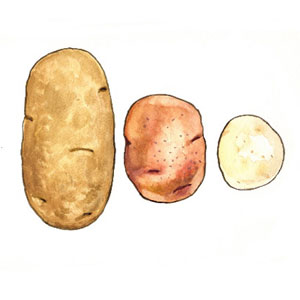So while I have been here in Seattle, I have been basically cooking non-stop! Especially since I hurt my knee on those treacherous west-coast hills, I have been taking it easy a lot and I guess I don't feel that bad about it since I technically am on vacation. In the past few days we have made everything from a whole roast duck, to chicken liver pate and everything has been really great!
What I have noticed is that it makes a big difference when you try to take a step back and let food become something that is really fun. When I am at school and trying to mange my weight it can get stressful and will come down to situations where I am really just thinking about calories and individual nutrients. When I can cook all of my own meals and am making everything fresh, I don't even think as much about calories or ratios, but just focus on what I am making and techniques of the cuisine. Often times, when you just try to cook traditionally and use whole ingredients, the nutrition takes care of itself better than when you are thinking really hard about it. I will have to try to keep that in mind when next semester starts up!
Anyway, today I want to talk about Potatoes!

For those who are trying to subscribe to a healthy lifestyle, many have thrown away potatoes as starchy, empty calories and look at it with the same distaste as white flour. However, I think that eaten in moderate portions potatoes have been given a lousy reputation unfairly, and that they can be easily put into a healthy diet. Although it is true that potatoes contain a lot of carbohydrates, they also contain a lot of vitamins, fiber (1 medium baked potato has more fiber than a serving of brown rice), and until you process them to an unrecognizable point, they are quite healthy and satiating (especially if you have an active lifestyle). A few things you want to keep in mind though is that when you peel a potato, the nutritional value goes down, so eat the skin! If I am eating white potatoes I like to go for the red or fingerling ones not only because I think they taste better, but they are smaller and thus have a higher skin to starch ratio (in my mind at least?).

That all being said though, there is no doubt that sweet potatoes have a higher nutritional value than white potatoes. They are lower in calories, but also have more vitamins such as vitamins c and a, minerals such as potassium and magnesium, and anti inflammatory compounds. Similarly, yams are also very beneficial to ones health, but are not the same thing as a sweet potato at all. It seems that sweet potatoes still win out over yams when it comes to minerals, vitamins, and compounds.
Today I was thinking of what to make with the leftover duck we had, and I was inspired to make sweet potato latkes.
What you will need is:
- 2 large sweet potatoes, grated
- 1/2 of a red onion, chopped
- 1 sprig of rosemary, chopped (optional, but great)
- 1/4 lemon
- 1/4 cup of flour (wheat or spelt or anything really I used white because it was all Dan had but but whatever the healthiest thing you have will work!)
- 1 egg lightly beaten
- 1 clove of garlic, minced
- salt to taste
- pepper to taste
Pre-heat your oven to 350(if you want to bake rather than fry)
First you grate the sweet potatoes in a large bowl and squeeze the lemon and sprinkle some salt onto them. Set them aside.
Then you take the chopped onions, garlic, rosemary, flour, and egg and combine them in a bowl together.
Pat the potatoes with a paper towel to get some of the moisture out and combine the onion mixture with the sweet potatoes until they are well mixed.
The next part is up to you, you can fry the latkes in butter or oil, or you can bake them on a lightly greased pan for about 30-40 minutes. I tried to fry them but they were coming out sort of greesy, so after trying two I decided to bake them. Either way, you can just scoop out the mixture with a regular spoon and make little silver-dollar pankate sized latkes.
After they were done I decided to serve them with a little creme fraiche I had (another source of beneficial fermented dairy!). They were great, I had to cut myself off!


































